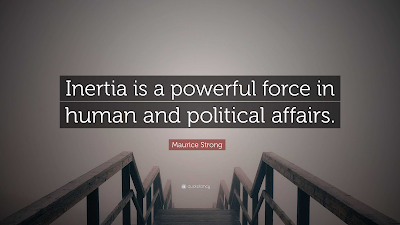It probably hasn't escaped your notice that extreme right-wingers are never happy. They see enemies everywhere; subversion abounds. The white race is under attack, trans people are on an ungodly mission to upend 'normal' sexual identity, drag queens want your children, sanctuary cities in the U.S. are allowing killers and rapists to sap the Union, Black people want to end the police, etc., etc., ad nauseam.
This cult of victimhood has never been more apparent than under the Don Trump regime. To believe him and his abettors, the American justice system under Biden was weaponized, Canada is screwing the U.S. when it comes to trade - no, wait - make that the entire world that has been exploiting U.S. benevolence, whether through NATO, Ukrainian-Russian wars, digital service taxes, unfair tariffs - you get the picture. The elephant in the room has been kicked around enough, and won't take it anymore.
So much for American mythology.
Closer to home, PP, the leader of the Conservative Party, has, until very recently, preached the same message about Canada. It is broken, we have been told, thanks to the ineptitude of Liberal rule these past 10 years. Only PP and his party can rectify things, so the message has gone, at least until very recently.
Now that the Liberals seem to be gaining polling traction thanks to Don Trump's attacks on our sovereignty, the Conservatives have altered their message slightly, adopting a Canada First slogan that seems but an anemic echo of the bellicosity coming from the U.S. Indeed, to prove his bona fides as a strong leader, PP has even said we must immediately send troops, helicopters and surveillance to the border, a placatory move that will find no real favour with the southern behemoth. One wonders if PP has ever heard of Neville Chamberlain.
Additionally, as Craig Wallace writes, the would-be PM
has promised to build a large military base in the Arctic, funded by cutting foreign aid (sounding like Trump and his MAGA base here) and threatening to jail fentanyl dealers for life (a violation of the Charter of Rights). He still cannot or will not describe in detail how he will “axe the tax,” “build the homes,” “fix the budget” and “stop the crime.” He, in fact, has no answers.
Like his schoolyard taunts ("carbon-tax Carney, carbon tax Freeland"), all of his bromides are simplistic, and, if directed solely to his base, likely satisfying. However, for those of us who choose not to farm out our thinking to a career politician, all that PP says, as the saying goes, is thin gruel indeed. As we move into the next federal election sooner rather than later, all of us need to be engaged and critical in our thinking.
I know that's a tall order, but when the future of Canada is at stake, it is surely not too much to demand.




















